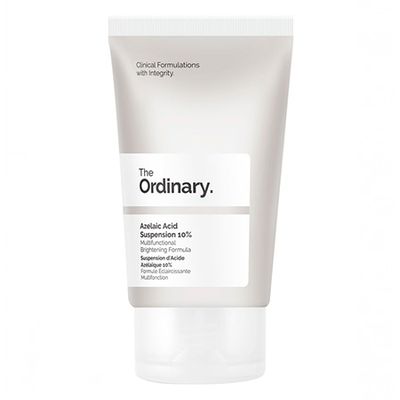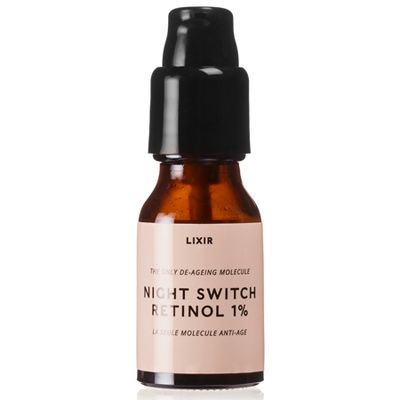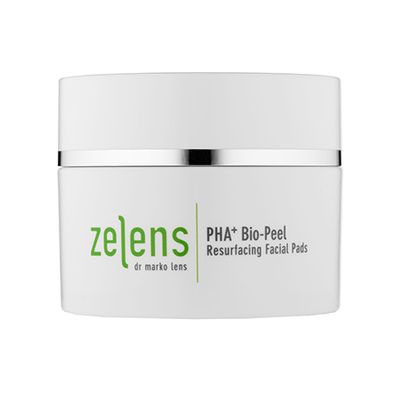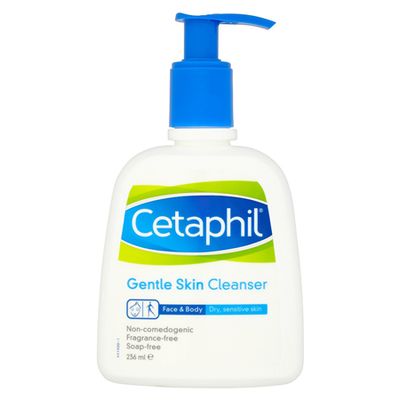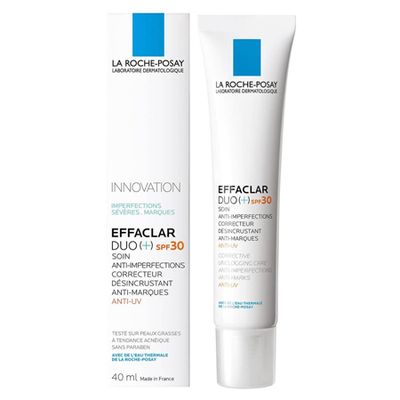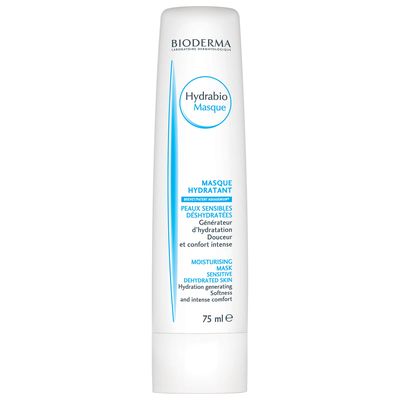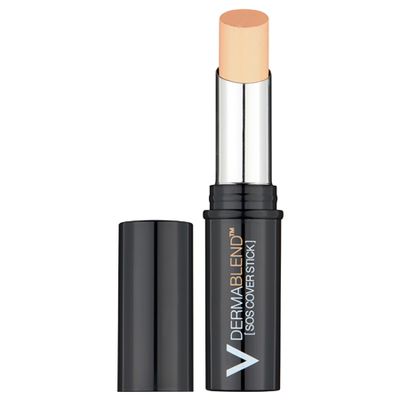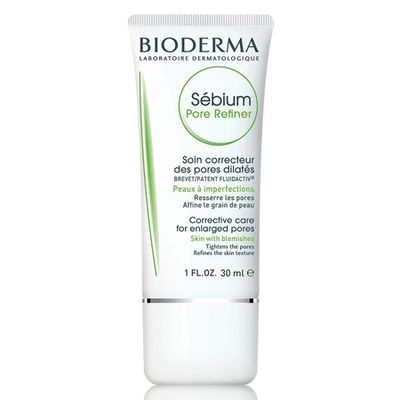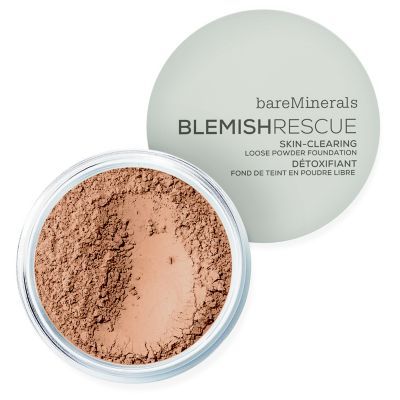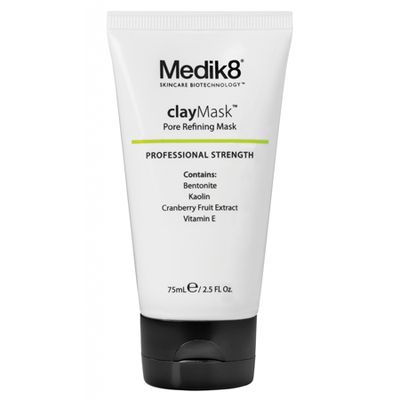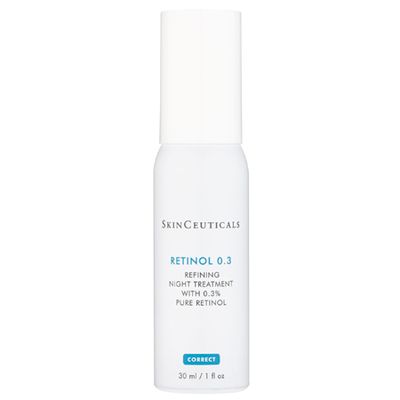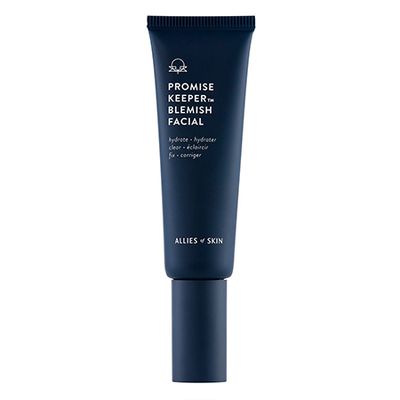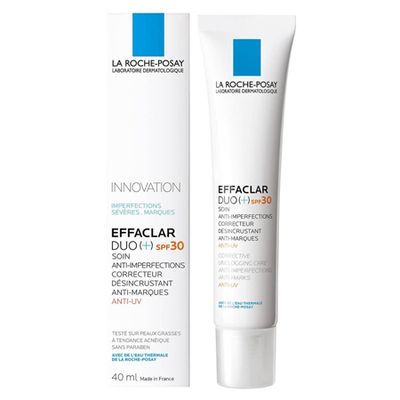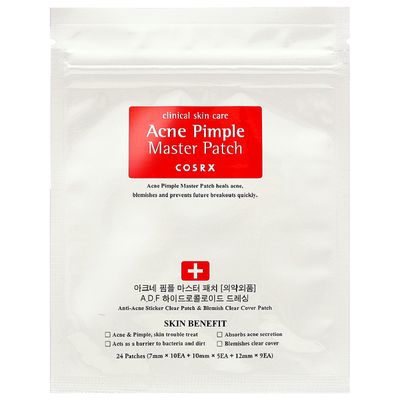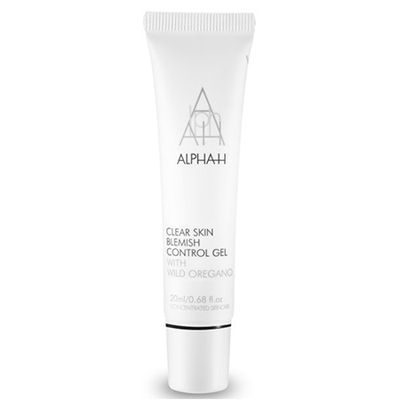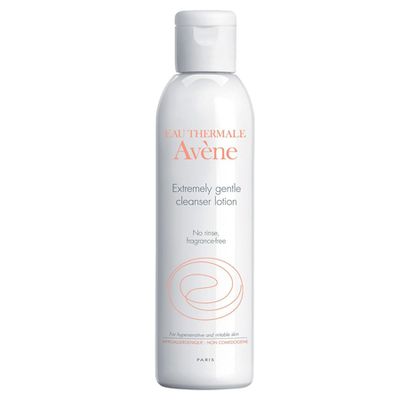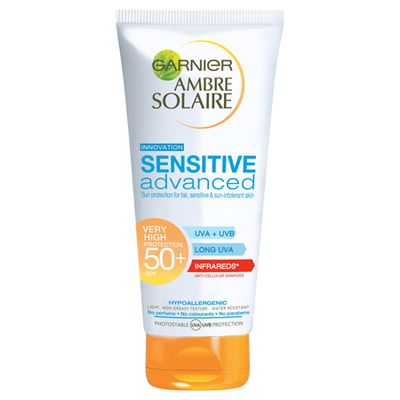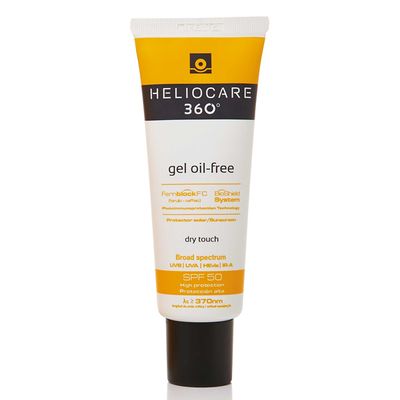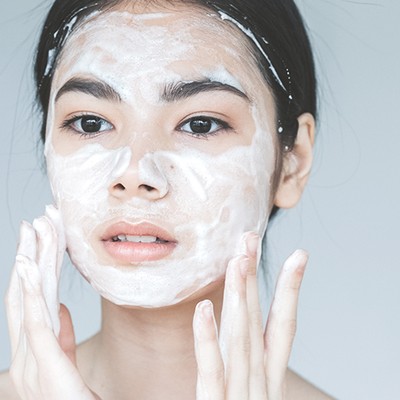
The Best Products For Adult Acne
And if your skin is sensitive?
Retinoid creams, benzoyl peroxide and salicylic acid can all cause redness, dryness and irritation – if you have sensitive skin, use a gentle cleanser, such as Cetaphil Gentle Skin Cleanser, and a light moisturiser, like La Roche-Posay Toleriane Fluid, and introduce the active ingredients gradually. For example, start with a retinoid cream and introduce it gradually into your routine by using once a week at night to start with, then twice a week and so on, until you build up your skin’s tolerance to nightly use. If introduced slowly then sensitivity or the redness and peeling typically associated with retinoid use is less likely to occur – these side-effects can also be reduced by using a soothing, rebalancing treatment.
How should you tackle redness?
Redness associated with acne will improve once the spots and inflammation are better controlled. It can be treated actively by using a prescription cream, such as azelaic acid. There are some really good products for concealing the redness of acne blemishes and improving self-consciousness, such as Vichy’s Dermablend Corrector Stick and Bioderma Sebium Global Cover foundation which has a handy pot in the lid with a green tint to take down redness. Mineral make-up containing zinc oxide or titanium dioxide is great for absorbing excess oil and can also be used for camouflaging redness. I like the range from Bare Minerals.
Which masks are good and how often should you use them?
A good clay mask is great for soaking up extra shine and can be used once a week as an addition to your usual skincare routine. I like the Skinceuticals Clarifying Clay Mask and the Medik8 Natural Clay Mask.
What about fast-acting treatments?
A targeted bacteria-zapping gel like benzoyl peroxide (e.g. Acnecide) or a pore-unblocking agent containing salicylic acid (e.g. La Roche-Posay Effaclar Duo) can be applied directly to spots after cleansing. Salicylic acid and benzoyl peroxide may cause some dryness or peeling, so you only need to apply a small amount and you can follow with a light moisturiser afterwards.
Which is the best cleanser for acne-prone skin?
Cleanser-wise, I like Avène Extremely Gentle Gel Cleanser. Those with oilier skin types may also benefit from a cleanser with salicylic acid to help dissolve excess sebum. My advice is to wet your face with lukewarm water and then massage your cleanser gently into the skin with clean fingertips for 30-60 seconds before rinsing. Pat the skin dry after cleansing and remember: no scrubbing, rubbing, squeezing or picking at this stage if you have spots, as this can increase inflammation and delay healing. Cleanse your face twice daily and after exercise. Remove makeup before cleansing your skin in the evening; I prefer a micellar water for this.
Are there any products to avoid?
My personal recommendation is to avoid oil if you’re acne-prone. I’m also not a fan of using harsh scrubs on acne-prone skin – they can exacerbate the problem, making spots red and sore. Instead, focus on using products that chemically exfoliate the skin, such as retinoids, retinol, salicylic acid or AHAs: these do a far more effective job at exfoliating without causing any unnecessary trauma to the skin.
When should you seek professional advice?
If spots are a concern of yours and you’re having difficulty working out what to incorporate you’re your routine, my advice would be to see a consultant dermatologist with a particular interest in acne, who can build a treatment plan that’s unique to you and your skin. They can also prescribe treatments, if needed, such as prescription-strength retinoids and products containing benzoyl peroxide: a further ingredient that can be used to reduce breakouts by eradicating the bacteria that cause spots.
For more information, or to book an appointment with Dr Kluk, visit DrJustineKluk.com
DISCLAIMER: We endeavour to always credit the correct original source of every image we use. If you think a credit may be incorrect, please contact us at info@sheerluxe.com.
